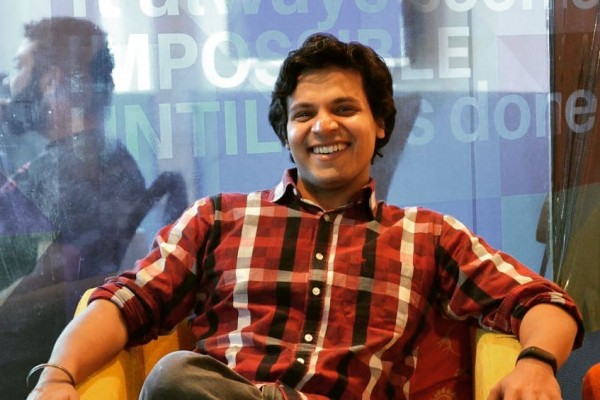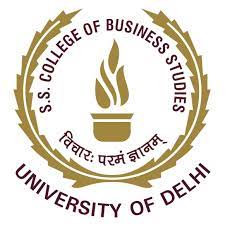Interview with Nikhil Chainani, Founder Perspectico
Nikhil is an Edutech entrepreneur who quit his investment banking career to work for improving the quality of employability scenario in India. He has founded smart job management tools Perspectico and Suitable.
What is Perspectico all about?
Perspectico has the aim of making people self-aware. As a recruiter, we want to hire someone who knows why they’re applying for a job.
In India, when it comes to education or jobs, there’s a trend of a rat race that you tend to follow that the highest package in the campus is that of investment banking without realizing what it is and what other career options are available.
At the senior level, even someone from a different domain who is happy in their life and good in their work will probably make more money than you because you are doing something out of pressure.
You cannot learn to drive from someone who does not know how to drive. So, the idea of Perspectico is pretty simple, making people aware by assessments and undergoing training modules with the help of industry mentors
This is helping thousands of candidates across India and I’m pretty sure it is helping recruiters all across India to get trained, curated and more self-aware candidates who are clear about why they want to do a particular job.
What are the skills that are generally required by recruiters and where do you think the students go wrong? How can we bridge this gap?
There are two types of skills. Those which are required for any job and the other includes specific skills required for specific industries.
We have seen cases where people are not able to introduce themselves properly and not trained as to why they are a good fit for a job. Many people are not able to answer what has been written in their own resumes. All this is, of course, a turnoff for any recruiter. The key is to be aware about what the company does. Research about your job role in-depth and then decide.
So these are the kinds of skill sets required for any particular job. Now coming to a specific job, for example consulting, industry knowledge is crucial. Knowing, case studies, guesstimates, non-linear thinking, problem-solving ability and what a consultant does are very important.
What would you advise a first-year student who wants to effectively use their three years of college life?
‘Explore a lot’ is one major piece of advice that I’ll give you. Also do not get into this rat race. I got into Nomura, but I was still exploring. In college, I liked finance. I did a lot of courses, internships and talked to a lot of people who understand what the industry is. I found that 70-80% of people quit their first job and make a career switch. Some people realize this at 20, while others make a career switch even in their late thirties. And It’s absolutely okay.
Talk to those people, get references and internships. Internships in companies and startups are very crucial.
I suggest that you must stay with people smarter than you and try to absorb and gain their insights rather than spending a lot of time and money on courses.
We generally see people getting confused about their career. Were you also one of them and if yes, who helped you to make career-related decisions?
Everyone is different, and with so many career options out there, confusion is bound to creep in.
I was confused as to whether I should go for an MBA or whether I should go for a job. I had no idea which job I wanted to take. I was interested in finance and the wall street publications on my phone would prove just that.
That gave me a slight idea that maybe this is my cup of tea. The second confusion was the choice of CAT vs GMAT. So back in college, I started a small society called Contangrow. When I left college, it couldn’t survive because it was a student-led initiative. We used to call industry experts, make them sit in a small room with a cup of coffee and call it an open house. We once called Indiabulls’ Vice-President, investment bankers in a room and talked about careers in finance. For the discussion on CAT vs GMAT, we called alumni from Harvard business school online, ISB, IIM Ahmedabad and other notable institutions. It got a lot of traction.
So awareness and talking to people were the key. To answer the question, everyone was confused and this is what we did to tackle it.
Why did you quit your investment banking career and go into the field of education counseling?
90% of the people who join investment banking will quit the job in the first 3-4 years because it is not just about the job, but also about your work-life balance. In Investment banking, you may earn a lot, but when you consider the number of hours put in and the degree of volatility in the finance domain, the per unit of pay is probably equal to what a normal person earns. The degree of pressure and stress was more than I could take.
While in investment banking, I was in charge of recruitment and training. I used to shortlist and take the first round of interviews and I found that there was a big problem of unawareness in students. A lot of them are blindly going about chasing careers. As a recruiter, It was disheartening to see that a lot of people are applying without knowing why they wanted to do Investment Banking.
And as I realized that this is a problem, I started working on Perspectico.
You have this amazing initiative named Suitable that assists the recruiters. How does your initiative complement the Perspectico?
Perspectico is basically a training and sourcing platform for recruiters and specifically early-stage tech startups, who are facing the burning problem of hiring good engineers. It is basically anyone who wants to prepare for general interviews.
We started another initiative called Suitable which is a community-led recruitment platform. The recruiters get access to top talent which has been vouched for by the fellows of the profession. So someone who has already worked in the sector is vouching for you.
We foster referral hiring and all this is done through automation. The LinkedIn profiles and other such platforms are read through artificial intelligence, with a high degree of AI involved.
Are recruiters adopting mediums, such as your platform instead of going through the traditional recruitment cycle and what growth do you see in around five or 10 years?
Recruitment consists of three functions. The first is identifying talent.
Now think of it like a tech startup, an early-stage tech company that recently came into the sector and wants to hire good people. What is the first thing that you do? What is the most important source of hiring? Its LinkedIn. Attracting talent is a very important feature. It’s called brand evangelist. How do I make sure that people apply to a company they have not heard of?
I will manually reach out to that person. I will try to convince them to apply for this job. This is a very important source of hiring at an initial stage. The initial first five to ten employees are going to shape how your company will become.
Good talent has to be recommended and comes from referrals. To make that process easier, we have technology tools like Suitable which is easy for the recruiters. Everyday, As soon as I wake up, I see my analytics and user growth trend. Since the launch, we have almost 10,000 plus candidates that we have trained so far in Perspectico. Almost 3000 plus candidates who have been placed in top companies be it internships or placements. We have almost a hundred recruiters on our platform.
We have crossed 500 talent scouts recently. Talent scouts are basically experts who help us leverage their networks. Our finances are under control. We are not spending too much money on marketing. Everything is organic.
What role has CBS and SIIF played in your journey?
SIIF gave us our first cheque, which was very kind. Even when we did not have a concrete plan in place, Puneet Sir, Poonam Ma’am and many other people helped me. The good part is that they were also my professors. Even raising funding is easier when you have a referral.
In fact, a lot of the clients that use our products are my batchmates from CBS. So the network that CBS gives is kind of tremendous. Even in COVID, the alumni group was active to help each other. In every department and profession, you will find a CBS connection.
What were the challenges that you faced during your journey?
Listening to users closely and understanding where they faced problems was the challenge we faced initially. Being an entrepreneur is also very hard when you are not earning money and are jobless. There’s family pressure and you see your friends doing stuff. But, It teaches you a lot of patience and perseverance. There is no benchmark of what you are making. It’s a very self-motivating and self-building exercise.
Making a unicorn is easy because it is dependent on valuations and funding. The challenge is to make your business, unicorn-like, generating $1 billion revenue every year. CRED is a unicorn but they are generating very little revenue. Maybe their value comes from the data they generate or behaviour insights of credit card users. Companies should take this as a learning.
You need to make a stable business before turning it into a unicorn. I’ve seen people getting depressed because a company similar to them has raised money. The aim of a startup should not be to become a unicorn but to make sure that 1 billion people are helped and you make a profit out of it.
You should understand money before becoming an entrepreneur. Otherwise, you will end up raising and spending all of it. Everyday, we read about companies getting millions of dollars worth of funding but we never read about how many companies die after getting the funds. This is an important insight that a lot of startups also die after raising money.
How did COVID affect your plans and strategies? Was it helpful anyway, or was it an obstacle?
Our growth increased in COVID because tech hiring rose in COVID. The pandemic saw registration of the largest number of tech startups in India and presented a lot of opportunities. Non-technical hirings have taken a hit and it’s been a challenge to place our trained candidates from non-tech backgrounds to companies who are from non-tech backgrounds.
It has been both positive and negative, but overall it’s been a thumbs up.
What will be your advice to the budding entrepreneurs of CBS?
I personally don’t think that you should start a startup in college because I think you should explore college.
But if you seriously want to do a business and create an impact, you need to have a specific domain insight. You have to know something that other people don’t know. You need to figure out one problem where your solution is better than those available.
I started a recruiting startup because I’d recruited over 500 people and understood the product. If you are very good at identifying trends, then you can start it, but otherwise, I would not suggest it. The second reason is, your startup will take 200% of your time. It is not a part-time exercise and your best scenario is to struggle for six years. A lot of stress will still be there because the startup is like your baby and you will keep on thinking about it.




Comments